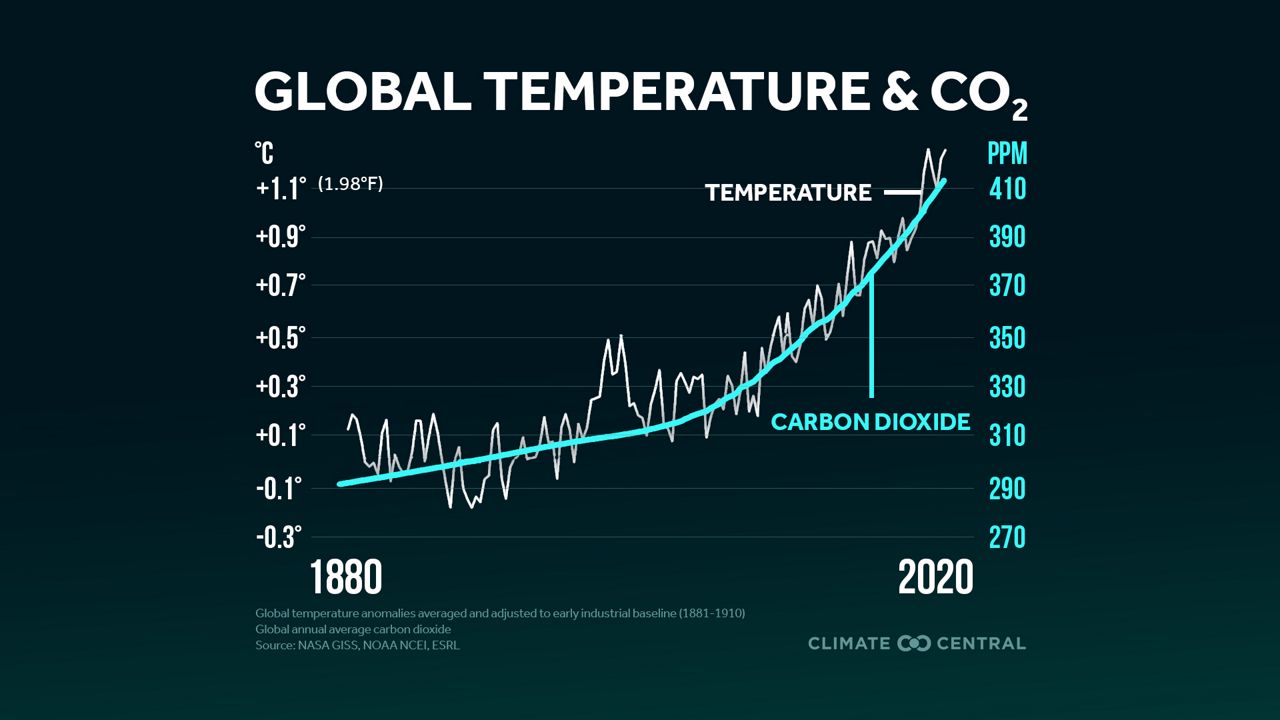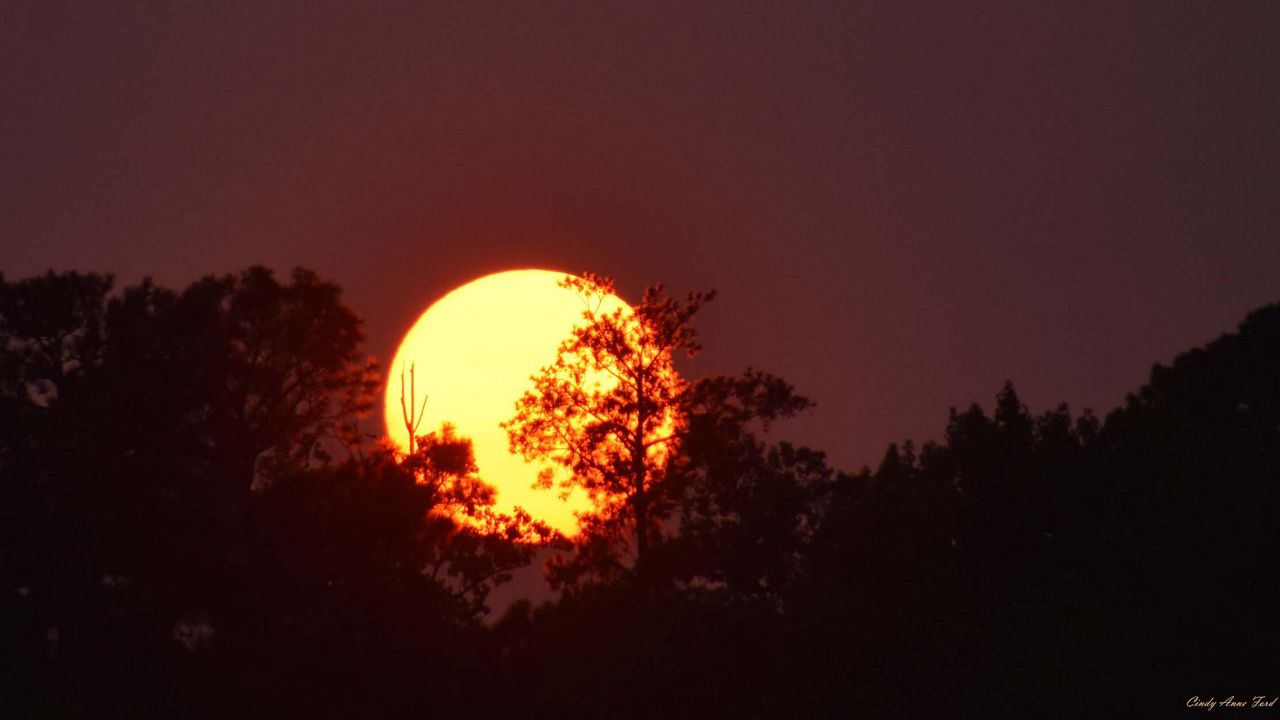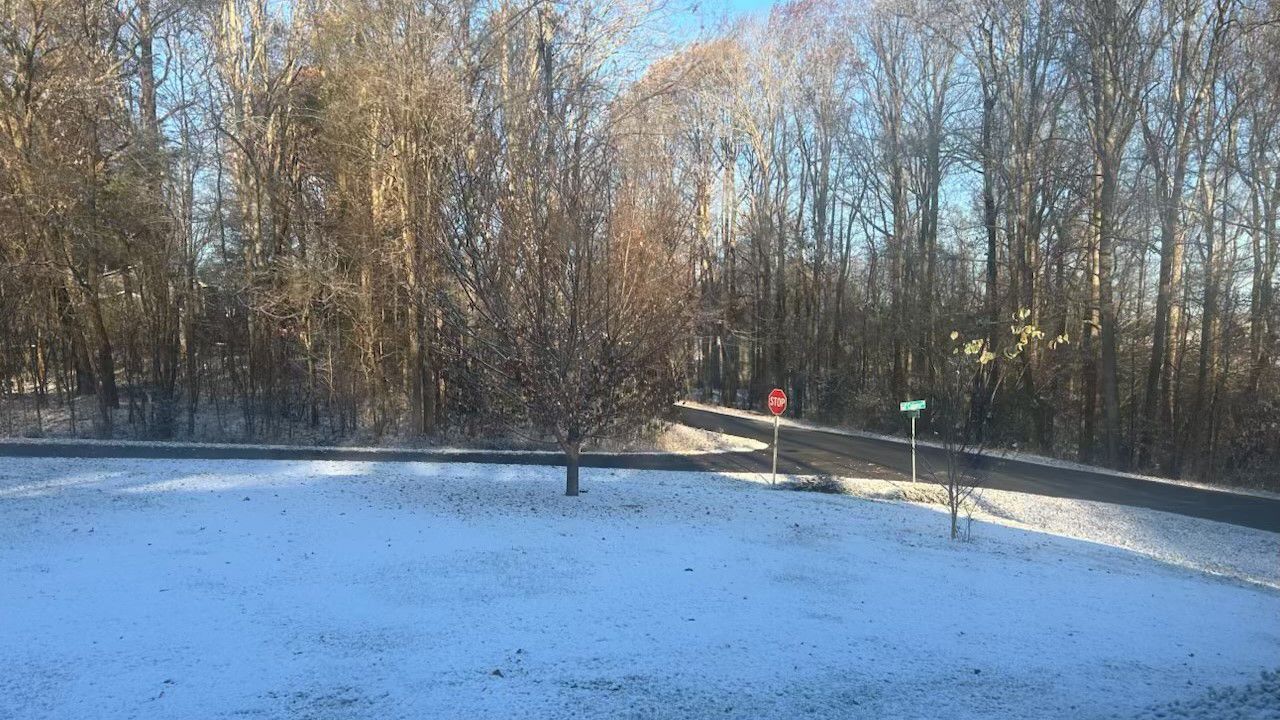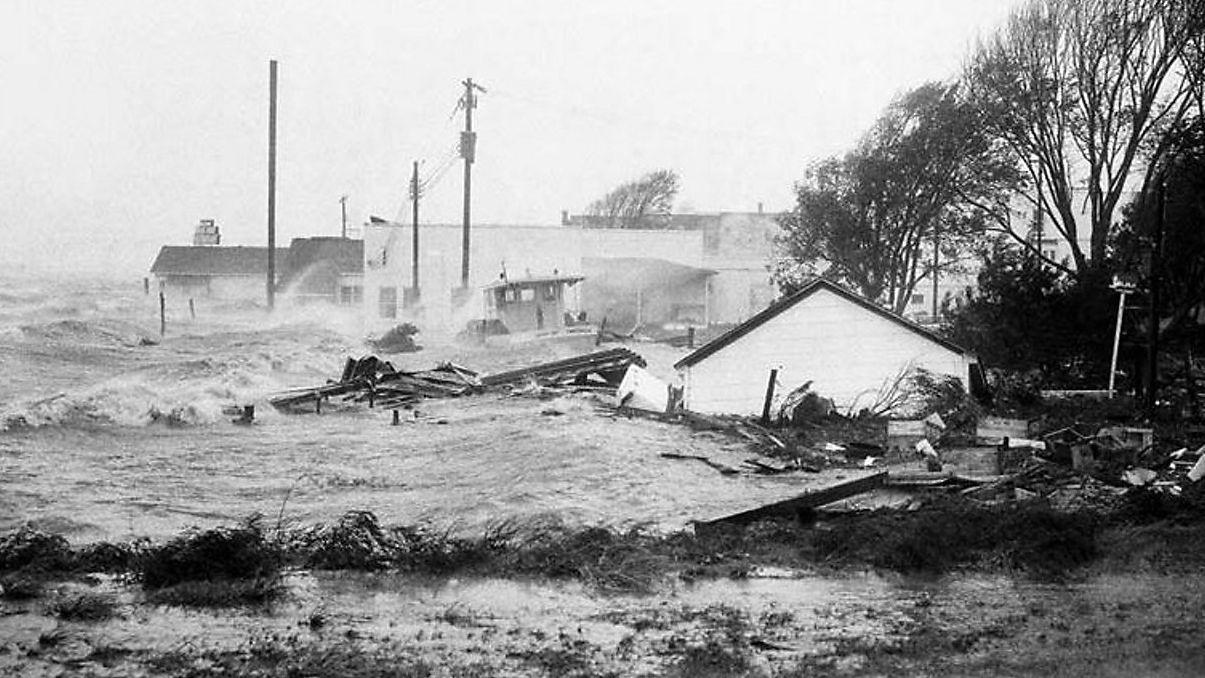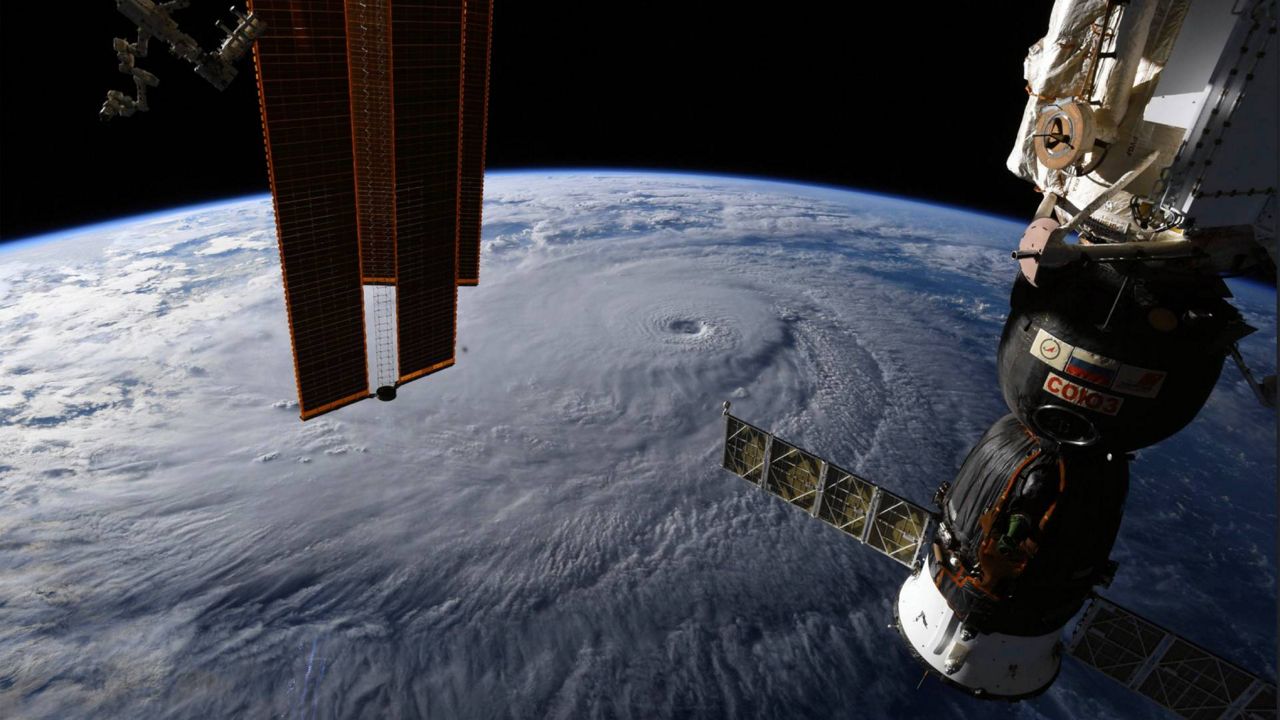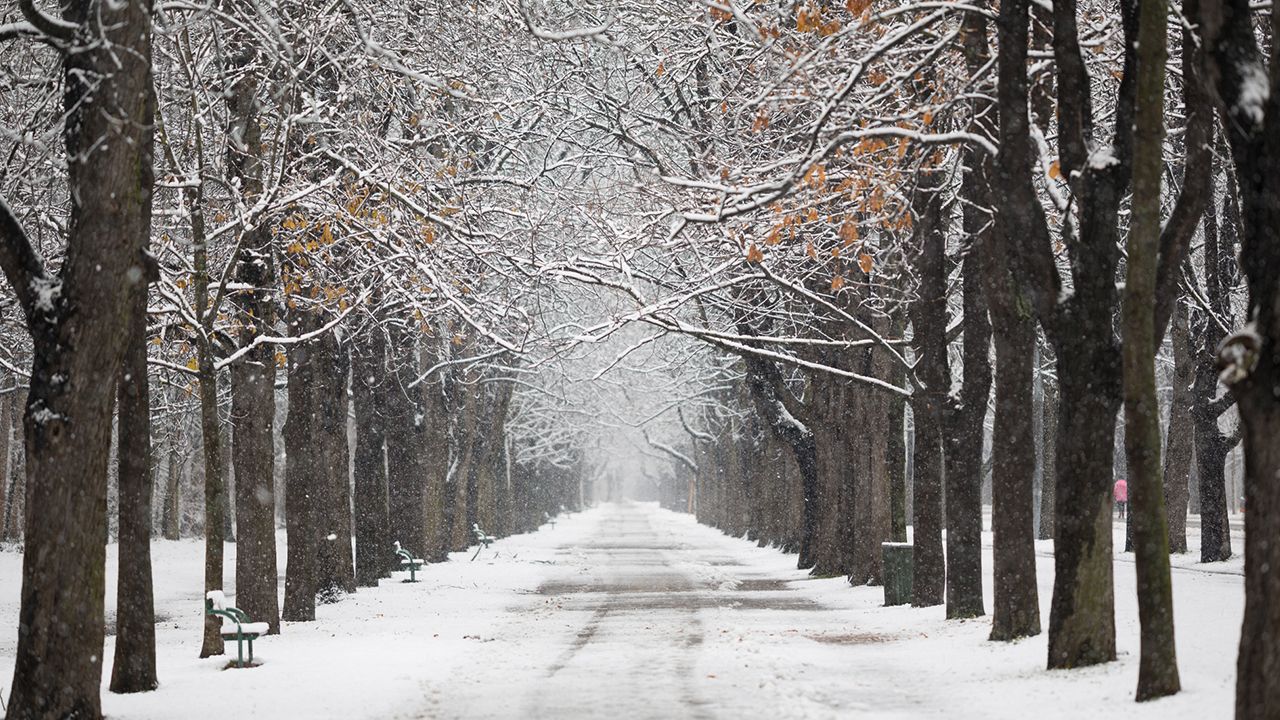We may be waiting quite a while before feeling any relief from North Carolina's hot and humid summer weather.
It already has been one of the hottest summers on record in the state capital. Many other cities are having one of the top 20 hottest summers on record.
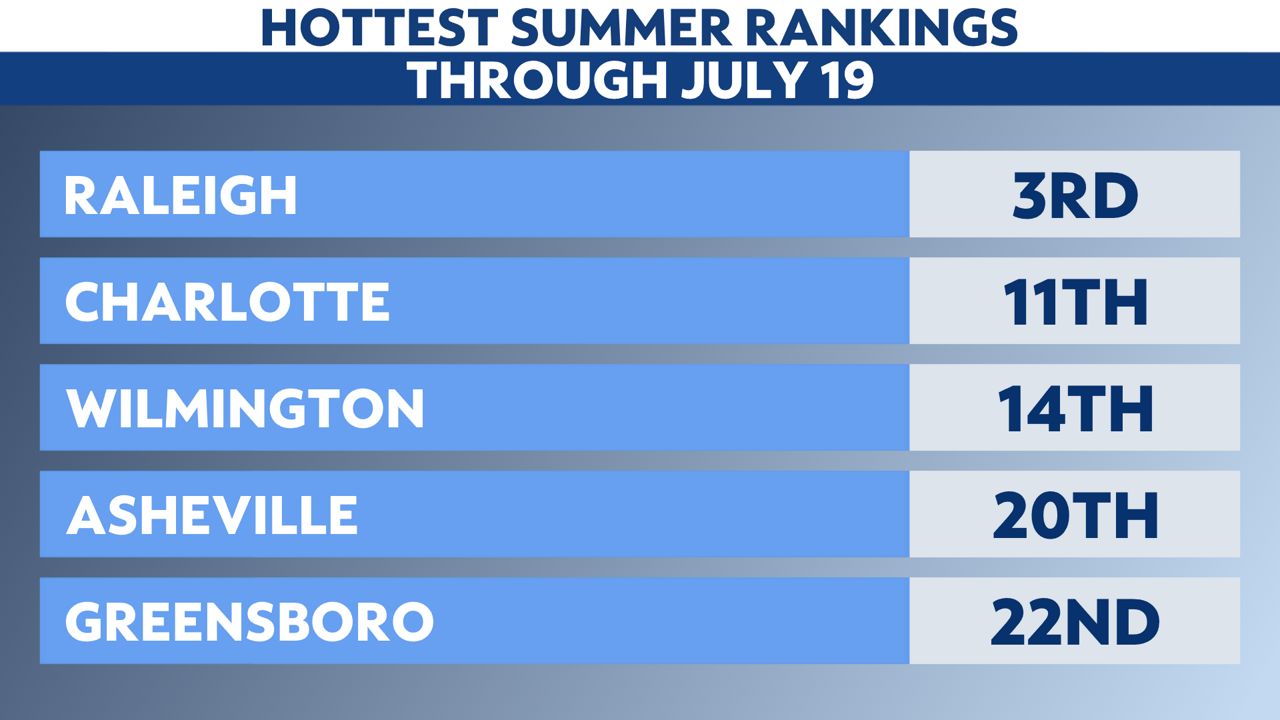
July typically brings some of the hottest weather of the year to the state. The rest of the month looks to be even hotter than normal.
Long range outlooks from the Climate Prediction Center show that may be the case even into early August.
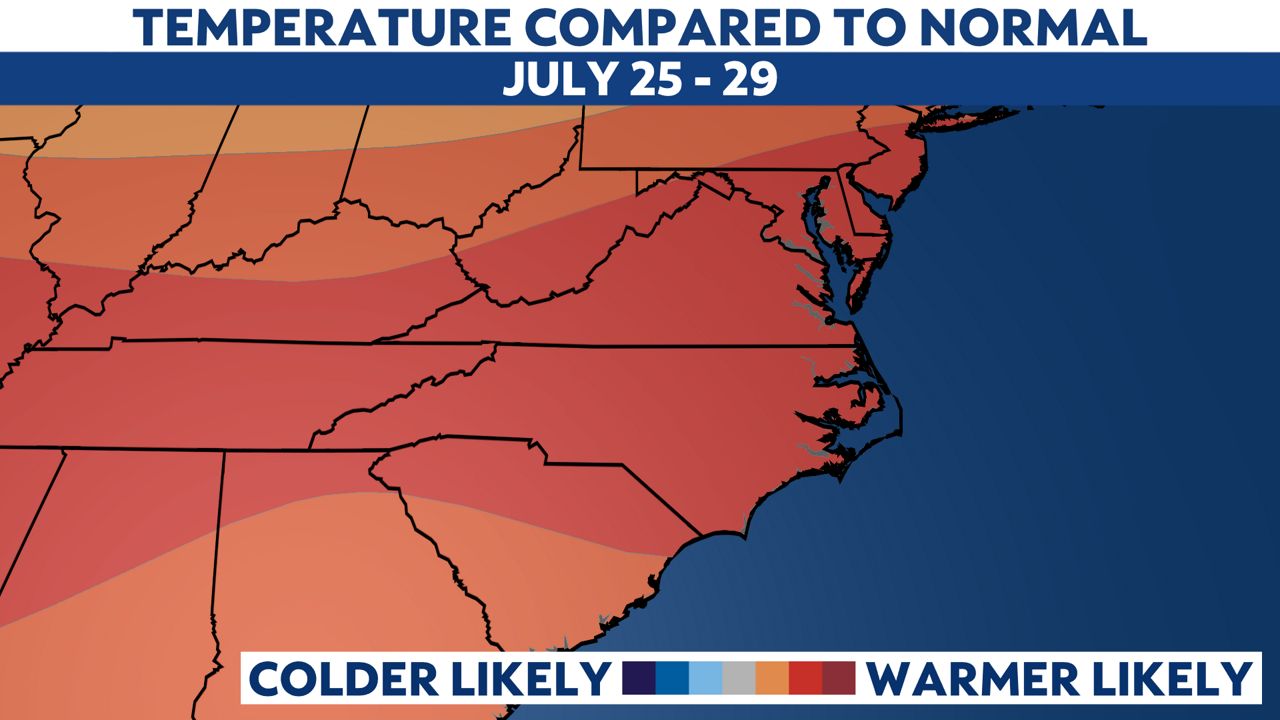
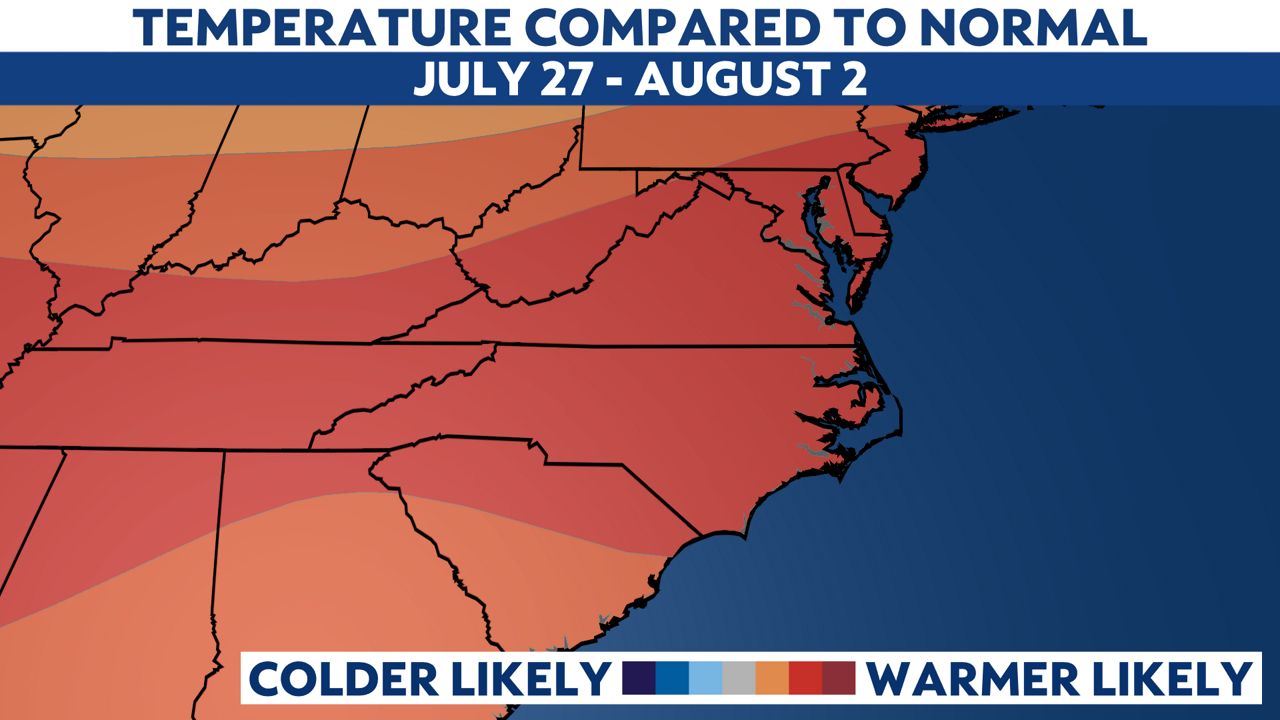
High temperatures outside the state's mountains and beaches most afternoons should reach the mid-90s.
With humidity levels also remaining high, it will feel more like 100 degrees for many afternoons.
The hottest days may be on tap for this weekend when actual temperatures could reach the upper 90s to near 100 in some spots. That would send the heat index soaring to near 105 or hotter.
Heat kills more people in the United States most years than hurricanes and tornadoes combined.
The affects of heat on our health are cumulative. The day after day of such hot weather can make us all more susceptible to heat related illnesses like heat exhaustion and even heat stroke.
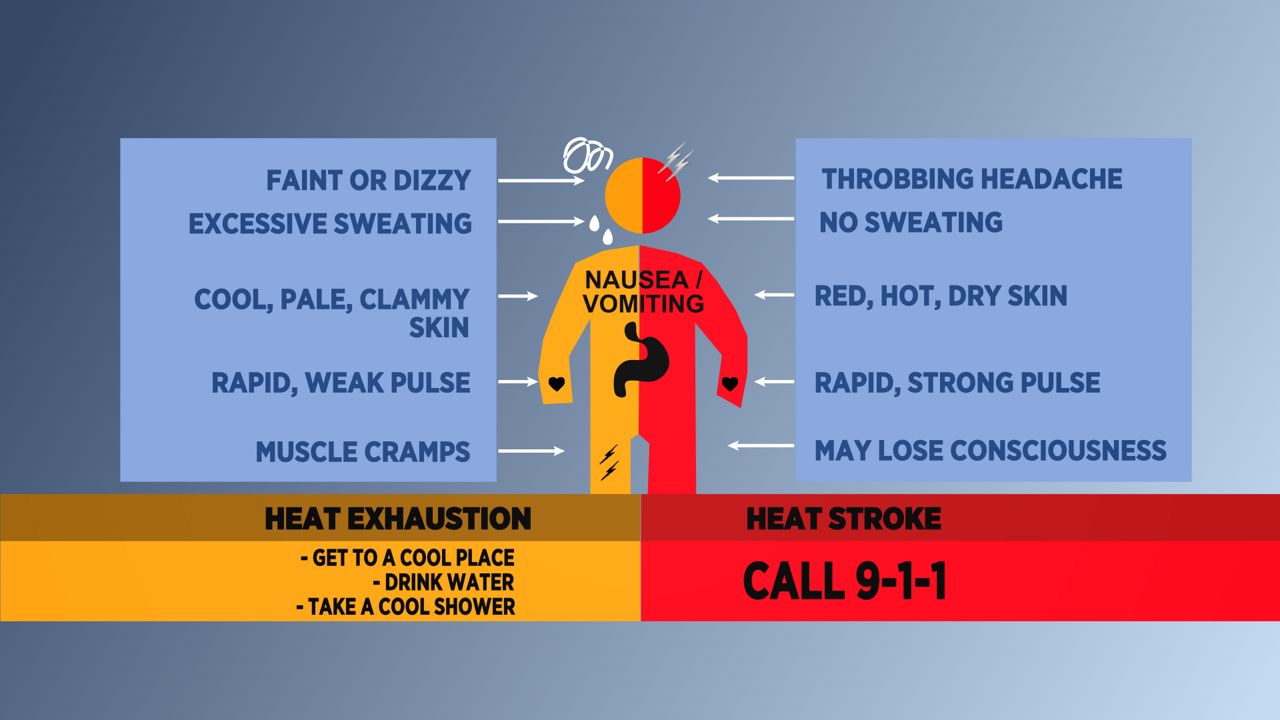
To prevent heat related illnesses, try to avoid working or exercising outside during the hottest part of the day, drink plenty of water to stay hydrated and take frequent breaks in a cool location.
The elderly and young children are especially susceptible to the heat. Be sure to check on neighbors to make sure everyone is able to stay cool during this hot stretch of summer weather.
Of course, that also applies to our pets. They need a cool place to stay and plenty of water to drink.
Early morning temperatures will also be quite warm. Lows may only drop to the mid-70s each of the next several days with the exception of some 60s around the mountains and foothills.
Those low temperatures also play a role in the dangerous heat especially for anyone who does not have access to air conditioning. When the temperatures just don't cool off much at night, it's difficult to find much relief from the heat.
The North Carolina Climate Science Report shows that overnight, or early morning, low temperatures are actually warming at a faster rate in our state than afternoon highs during the summer months.
While there is natural variability year to year, it is very clear that days with dangerous levels of heat are becoming more likely due to the earth's changing climate.
There is near unanimous agreement among climate scientists that the warming earth is directly related to increasing greenhouse gas emissions, like carbon dioxide.
